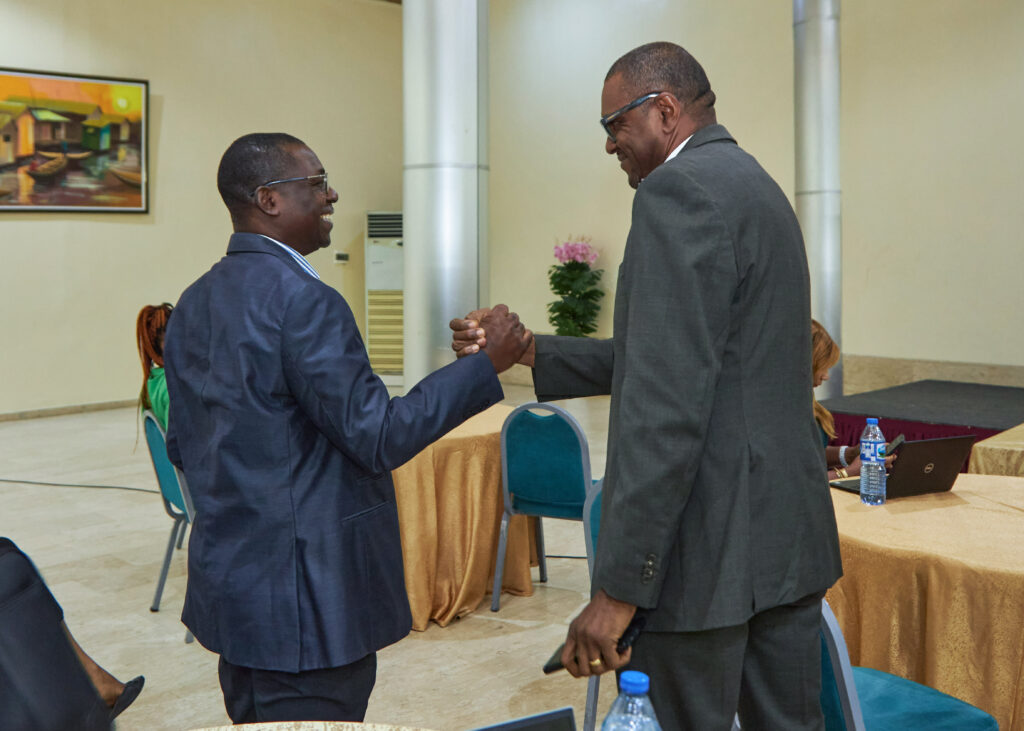
- C/Can’s experience shows identifying early warning signs and managing common symptoms are key to cancer patients’ survival
- The course focuses on skills to improve care, quality of life and survival of cancer care patients, along with effective management of side effects of cancer treatment in primary health care
Making cancer care more efficient
C/Can is launching an e-learning course in partnership with Spain’s Catalan Institute of Oncology (ICO): Oncology in Primary Health Care. An innovative learning programme for primary healthcare professionals in C/Can cities, it covers early diagnosis and management of the common symptoms associated with cancer and cancer therapy, upskilling healthcare professionals in LMICS through online exercises designed by ICO experts and C/Can city stakeholders.
The course was co-created with the support of the project team members from Tbilisi and Kigali, reviewing the draft of the course contents to ensure they match the context and resources available in LMICs. With the local input, the ICO developed the first edition of the course. C/Can’s Latin American cities’ stakeholders, Cali, Asuncion and Porto Alegre, support the development of the Spanish and Portuguese versions. Once the course is piloted, it will be uploaded to the e-learning platform of host institutions for primary health care professionals in C/Can cities. New cities that join the C/Can network will have the opportunity to access this course in the future.
The course reflects the outcomes of C/Can’s needs assessment and prioritisation process, explains the organisation’s Global Technical Lead, Dr Rolando Camacho:
“Our cities have identified an important skills and awareness gap in management at the primary healthcare level, which results in problems such as suboptimal cancer care, inadequate referrals to specialised care and treatment failure.”
Three ways to make cancer care more efficient
Research shows that cancer survival in LMICs is often compromised by advanced-stage presentation of the disease due to the lack of screening or early diagnosis, along with poor access to treatment. C/Can cities like Tbilisi and Kigali echo those challenges as major barriers to quality cancer care and appropriate and quality treatment.
The ICO’s head of e-oncología, Dr Assumpta Company Serrat, spells out the three main issues:
“Among the factors with the greatest impact on survival of cancer patients are early diagnosis of the disease and proper control of the symptoms and the adverse effects of treatments. Primary care professionals must play a fundamental role in all of these aspects, which is why this programme is so relevant.”
The C/Can Oncology in Primary Health Care e-learning course will therefore focus on care, quality of life and survival for cancer patients in C/Can cities by training primary healthcare professionals in LMICs, including physicians, nurses and social workers to recognise early warning signs and symptoms for the most common cancers. This will allow them to make suitable recommendations, apply the main clinical guidelines on early diagnosis of cancers, and refer patients to specialist centres.
Equally, understanding the adverse effects associated with the most frequent cancer treatments (radiotherapy, chemotherapy and immunotherapy) is essential, as is identifying the long-term adverse effects associated with cancer treatments and knowing how to apply long-term monitoring plans for survivors.





